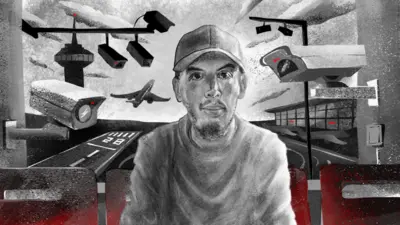Уроки английского: Internet English

Автор фото, Getty
В разделе Learning English мы публикуем учебные материалы, интерактивные проекты, истории о культуре и традициях англоязычных стран.
В этой истории - о том, как изменился английский язык под влиянием интернета.
More than twenty years ago the British inventor Tim Berners-Lee created the world’s first webpage. It is worth pausing to consider the extraordinary impact that his invention has had on the English language.
<hr>
Everyday words like google, unfriend and app simply didn't exist in 1990.
Even more words have had unexpected shifts in meaning in those two decades. If you had mentioned tweeting to an English-speaker a few years ago, he would have assumed you were talking about bird noises, not the use of the microblogging site Twitter.
Long ago, if someone lived online, it didn't mean they spent every waking minute on the internet, but that they travelled around with the rail network.
And wireless still means, to anyone of a certain age, a radio - not the system for retrieving internet pages without wires.
"The internet is an amazing medium for languages," said David Crystal, honorary professor of linguistics at the University of Bangor. "Language itself changes slowly but the internet has speeded up the process of those changes so you notice them more quickly."
English is a remarkably inclusive language, and if words continue to be used for at least five years they generally end up in the Oxford English Dictionary.
But less accepted are the peculiar dialects that have sprung up amongst some users. For example, 'LOLcat' is a phonetic, grammatically-incorrect caption that accompanies a picture of a cat, like "I'm in ur bed zleeping".
In an article called "Cats Can Has Grammar" the blogger Anil Dash referred to LOLcat as "kitty pidgin". But does something like LOLcat have the staying power to become an accepted form of English?
Not according to Professor Crystal. "They are all clever little developments used by a very small number of people - thousands rather than millions. Will they be around in 50 years' time? I would be very surprised."
Notes:
- unfriend - удалить из списка друзей, разг. "отфрендить"
- app - программное приложение (сокр. от application)
- microblogging site - сервис (сайт) микроблогов
- of a certain age - пожилого возраста
- for retrieving internet pages - для поиска интернет-страниц
- medium - среда обитания
- professor of linguistics - профессор лингвистики
- has speeded up - ускорил
- inclusive language - инклюзивный язык
- end up - оказываются
- less accepted - менее распространенным
- peculiar - специфический
- dialects: дословно - диалекты; здесь - интернет-сленг
- have sprung up - появились, возникли
- caption - подпись
- accompanies - сопровождает
- blogger - блогер (человек, который ведет интернет-дневник)
- "kitty pidgin" - ломаному "кошачьему" языку
- staying power: дословно - жизнеспособность, устойчивость; здесь - потенциал








